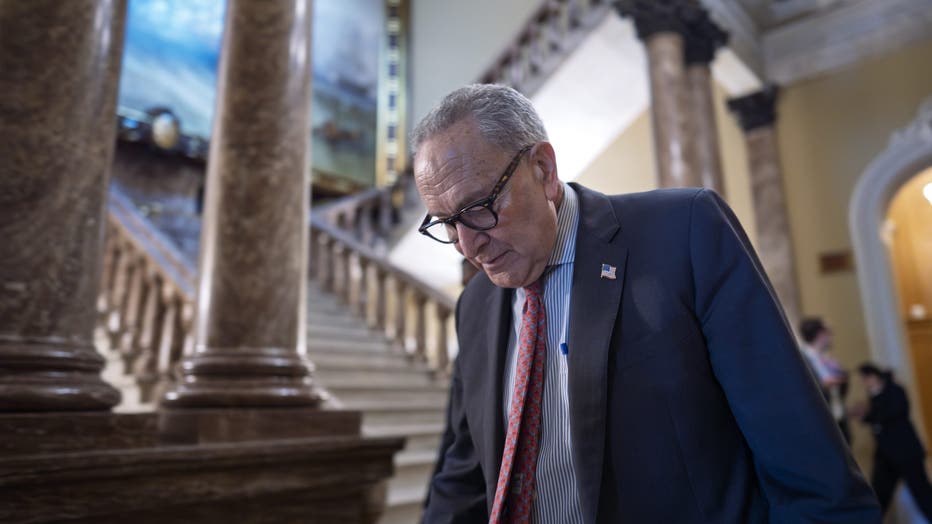WASHINGTON – The U.S. Senate has confirmed dozens of President Donald Trump’s nominees at once, voting for the first time this session under the chamber’s new “nuclear” rules.
The new rules were implemented to speed up the confirmation process of executive branch positions that had been delayed by Democrats looking to resist Trump and the GOP-dominated Congress.
Lawmakers voted along party lines to confirm a total of 48 nominees, many being for undersecretary or assistant secretary positions throughout the federal government in a variety of agencies.
Senate Majority Leader John Thune said Thursday on the Senate floor that those confirmed had all received bipartisan votes in committee, including deputy secretaries for the Departments of Defense, Energy, Interior and others.
Kimberly Guilfoyle, who the president chose to be the U.S. ambassador to Greece, was one of the nominees confirmed on Thursday. Guilfoyle is a former prosecutor and television news personality who was once engaged to the president’s son, Donald Trump Jr.
Callista Gingrich, wife of former House Speaker Newt Gingrich, will now serve as the U.S. ambassador to both Switzerland and Liechtenstein, as well.
The ‘nuclear option’
The backstory:
Senate Democrats had forced multiple votes on almost every one of the president’s picks, according to the Associated Press.
In response, Senate Republicans again voted along party lines last week to allow the chamber to move multiple nominees with a simple majority vote. In the past, just one objection to a nomination could hold up the process.
These new rules, however, do not apply to high-level Cabinet officials and lifetime judicial appointments.
The party-line rules change is known as the “nuclear option” within the Senate, and it’s not the first time it’s been implemented. Thursday’s confirmations are simply one chapter of an ongoing saga between the two parties in Congress; they’ve both obstructed each other’s nominees for years and have advocated for speeding up the confirmation processes when they’re in the majority.
Most recently, Republicans under Leader Mitch McConnell carried out the nuclear option in 2017 for Supreme Court picks and then moved to cut down on debate time for most other nominees just two years later. Plus, Senate Democrats under President Joe Biden considered changing the rules to allow for a limited number of nominees to be confirmed in groups, but ultimately it didn’t happen.
What they’re saying:
Thune called the Democrats’ obstruction of the confirmation process “unsustainable” last week.
“We’re going to fix this today, and restore the longtime Senate precedent of expeditious confirmation, and the Senate’s role as first and foremost a legislative body,” he said. “Republicans have fixed a broken process.”
Senate Democratic Leader Chuck Schumer told the AP, however, that Democrats were delaying the nominations because the president’s nominees were “historically bad.” He also told Republicans that they will “come to regret” changing the rules.

Senate Minority Leader Chuck Schumer, D-N.Y., walks outside the chamber as Congress works on a government funding solution, at the Capitol in Washington, Thursday, Sept. 18, 2025. (AP Photo/J. Scott Applewhite)
“What Republicans have done is chip away at the Senate even more, to give Donald Trump more power and to rubber stamp whomever he wants, whenever he wants them, no questions asked,” he said last week.
What’s next:
Senate Republicans are expected to move to confirm a second group of Trump nominees in the coming weeks. They’re gradually picking away at a list of more than 100 nominees whose confirmations have been pending for months.
“There will be more to come,” Thune said Thursday. “And we’ll ensure that President Trump’s administration is filled at a pace that looks more like those of his predecessors.”
The Source: Information in the article above was sourced from the Associated Press, POLITICO, Axios, The New York Times, PBS and the United States Senate.











